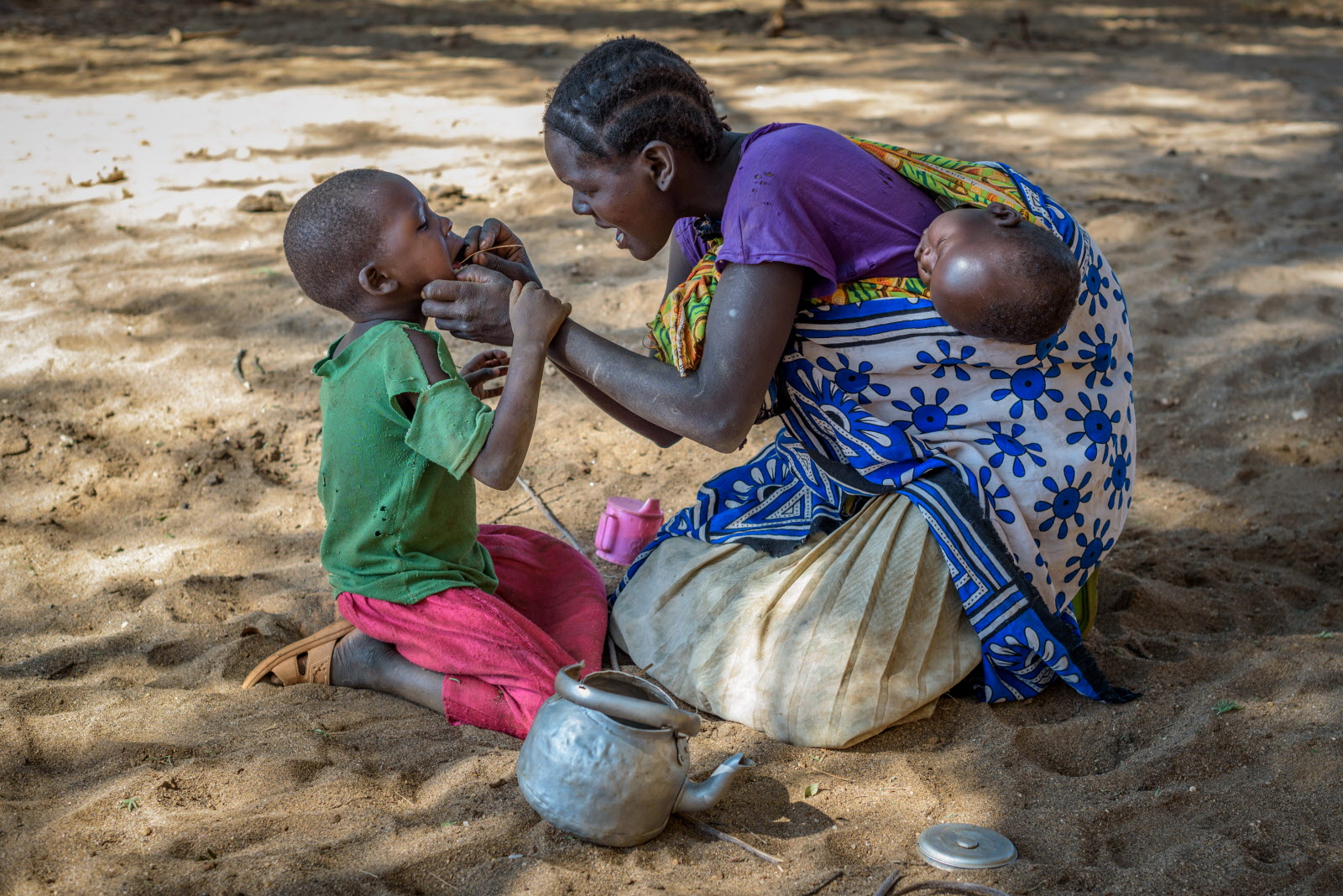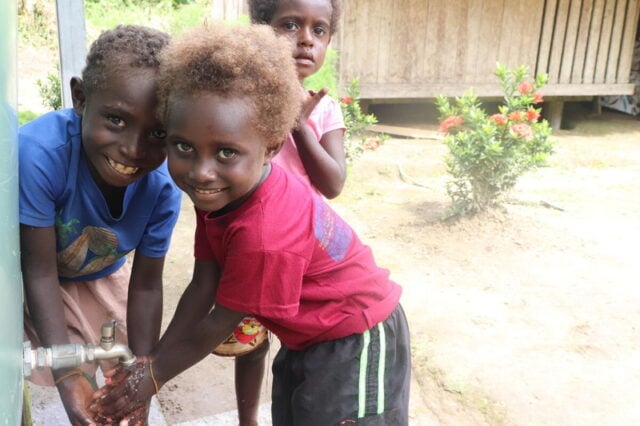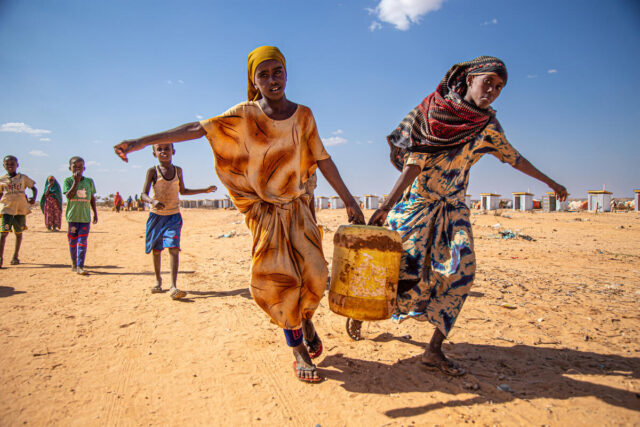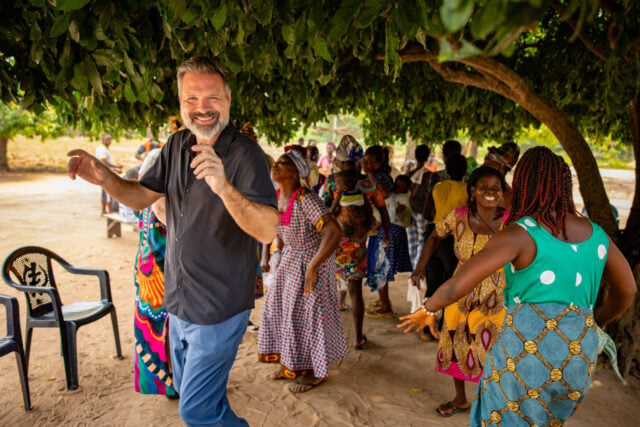In every corner of the world, moms work and pray for their children to have a better life than their own. Monica and Julia, two moms in rural Kenya, are no exception.
Both Monica and Julia’s families live in semi-arid West Pokot County. They live hardscrabble lives where there are few roads and even fewer opportunities to make a living. Like moms everywhere, they make sacrifices daily so that their children can have more opportunities and fewer struggles.
But what sets the two apart — and makes all the difference for them and their children’s future — is water.
Monica’s long walk for water
Monica Lotuliapus has the deck stacked against her. She spends most of her waking hours on a quest for water. Some days she walks 8K (4.9 miles) to haul more than 40 pounds of water in a jerry can on her head. She digs in a riverbed and laboriously scoops up each precious drop. There are times when the waterhole dries up and she walks 10K (6 miles) one way to a river to fill her jug.
“It’s very hard on me. If I walk for a long distance, my legs and my hands swell,” she says. Despite that, Monica must get water for her family and for the goats and cows. She doesn’t have time — or water — to raise a crop; she can barely keep her herd of goats watered.
“The cause of poverty and hunger here is simply the lack of water,” she says.
Water is always on Monica’s mind. “If I’m in the market buying my things and water crosses my mind, I’ll do things very quickly and run to fetch water.”
Education at risk for lack of water
Monica’s great hope is that her children will be educated so they can have a different life. Lack of water stands in the way of her dream.
She worries most about Cheru, her 5-year-old daughter who has just started kindergarten. With water so scarce, Cheru doesn’t know the comfort of a warm bath or a glass of cool, clean, safe water.
The little girl trails behind the older children as they walk more than 6K (3.7 miles) to and from school. They fill their jerry cans with water to take to school and to bring home on their return. Cheru struggles to keep up. Like the other children, she’s hot, tired, and dusty. Often she’s sick.
“When the kids get sick, I feel so bad,” she says. “They are not happy.” They can’t play, laugh, or even talk, she says.
“My prayer is that we have water nearby so that my kids can have time to go to school and they can play with their friends,” says Monica. And for herself, she prays that the burden of carrying water will be lifted so she can have free time to sit in the shade and watch her children play.
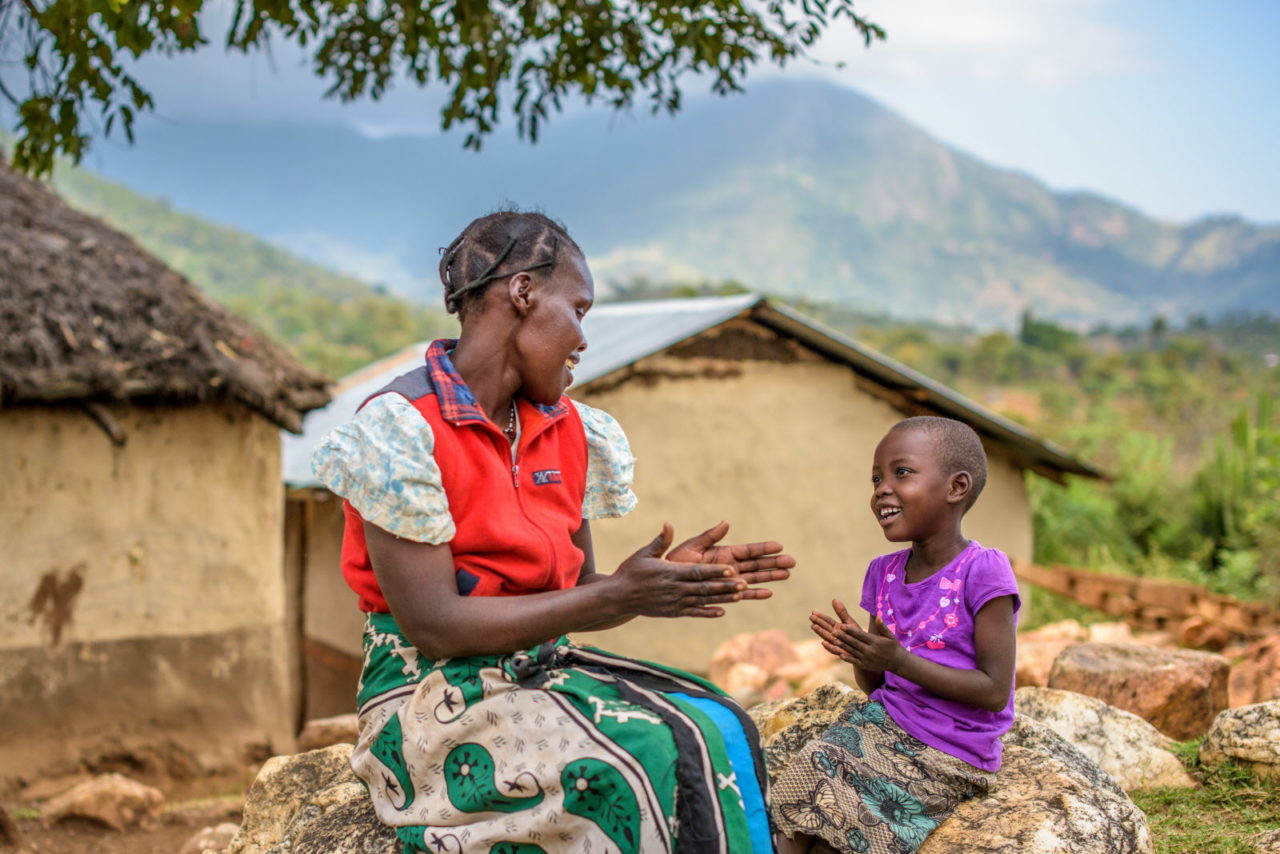
Water: Julia’s answer to prayer
Julia Lolem welcomes guests to her home with a cup of hot milk tea. Before the drink is served, she pours warm water from a pitcher for each guest to wash their hands. The wash water she catches in a dishpan; none is wasted.
Julia has a water kiosk just minutes away from her door, and she has a 100-liter water storage tank of her own. Her family lives in a community served by World Vision’s Mtelo water project. The gravity-fed water system supplies clean water to 880 households as well as schools, churches, and a health center.
“In the old days, I walked to the river to get water three times a day; it took an hour [each time]. Now it takes just a few minutes to the kiosk to get clean water,” says Julia.
Kamama, her 5-year-old daughter, runs happily to school each day with her school mates. When she comes home, there’s time to play and bathe before bed.
“I warm the bath water for the younger kids,” says Julia. “Before, I worried and measured out water — this much for you. Now we use the water we need without worry.”
“Before, I hoped they would bathe one or two times a week at the river. The little ones I’d clean at home. When the river dried up before, we had to dig. Most years it runs all year long, but I was always worrying it would stop running.”
Facing the future with confidence
Even with water at hand, Julia’s life isn’t easy. But she is confident in her ability to make ends meet and see that Kamama and her other children are educated.
Julia’s faith and her church have given her the strength to go on since her husband died in a road accident in 2015. Julia didn’t know how she could support her family and keep the children in school. But her friends, family, church members, and World Vision came together to see that her family’s needs were met.
Now Julia moves through her day with quiet confidence. Since the water came, she can sleep later, she says. She’s more rested and in control. And with plentiful clean water close at hand, she has more time to care for her children, cultivate her garden, and do other work so she can manage her family’s expenses.
“That was a big day for us when the water came,” she says. “We said, ‘Praise God for World Vision; we are drinking good water now.’”
“In my heart, I understand that God is there for me all the time.”
